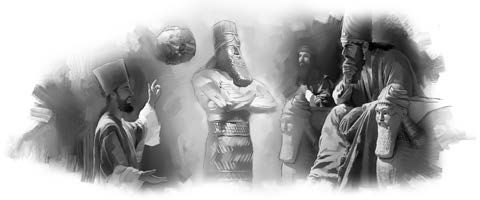The bride’s father escorted his daughter, now smiling, to the front of the crowd. The groom played a guitar and sang “The Hawaiian Wedding Song”.
The Lord gave me a few things to say, and I pronounced the couple husband and wife.
Afterward, the groom’s mother said something to me that still sends chills up and down my spine.
“I don’t think this was an accident”, she said. “I think this was meant to happen. Look at your shirt”.
I looked down at my clothing. I was wearing jeans, tennis shoes, and a powder-blue shirt. Stitched over the shirt’s pocket was the word, “Hawaii”, and a colorful rainbow. I had bought the shirt while vacationing with my wife in Hawaii several years earlier.
When they put the lei around my neck, it was as if my participation in the wedding had been meant to happen.
We gave the newlyweds a wedding gift: a copy of “Steps to Christ”. The couple had never heard of Seventh-day Adventists.
If the story had ended there, I would have been happy. But it didn’t.
Two years later, I was living in Texas and received an early Sabbath morning phone call from a veteran literature evangelist in Colorado.
“Do you remember that couple who you married in Rocky Mountain National Park?” he said.
He said the couple had read “Steps to Christ” and reached out to the Adventist Church for more information. “So, we sent them more literature”, he said. “Then they wanted Bible studies, and I’ve been studying the Bible with them for the last six months. You’ll be happy to know that today they are being baptized into the Greeley Seventh-day Adventist Church”.
Two more years passed. Campion Academy invited me to return to give a week of prayer. As I stood up to give the Sabbath sermon, I saw the literature evangelist walk in with the married couple and their toddler.
After the church service, they told me the rest of the story.
After being baptized, the couple had invited their friends to evangelistic meetings in the Greeley church, and three of them had been baptized. In addition, the groom’s mother had been baptized and was working at an Adventist hospital in Hawaii.
I hadn’t wanted to stop that day to argue with people in white robes. But the Lord was able to use a few academy students and a guy wearing a Hawaiian shirt to witness.
Benjie Leach is a volunteer home health chaplain in Fort Worth, Texas.

